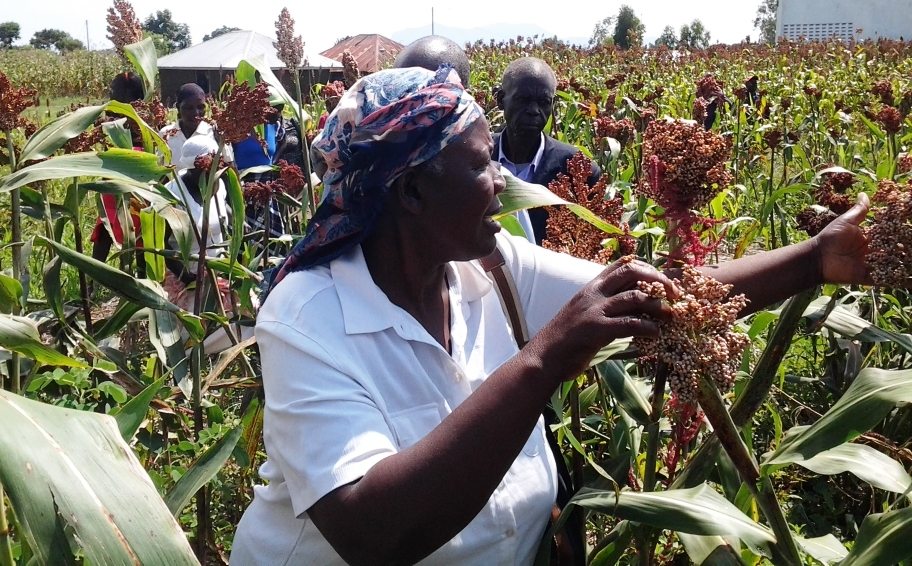
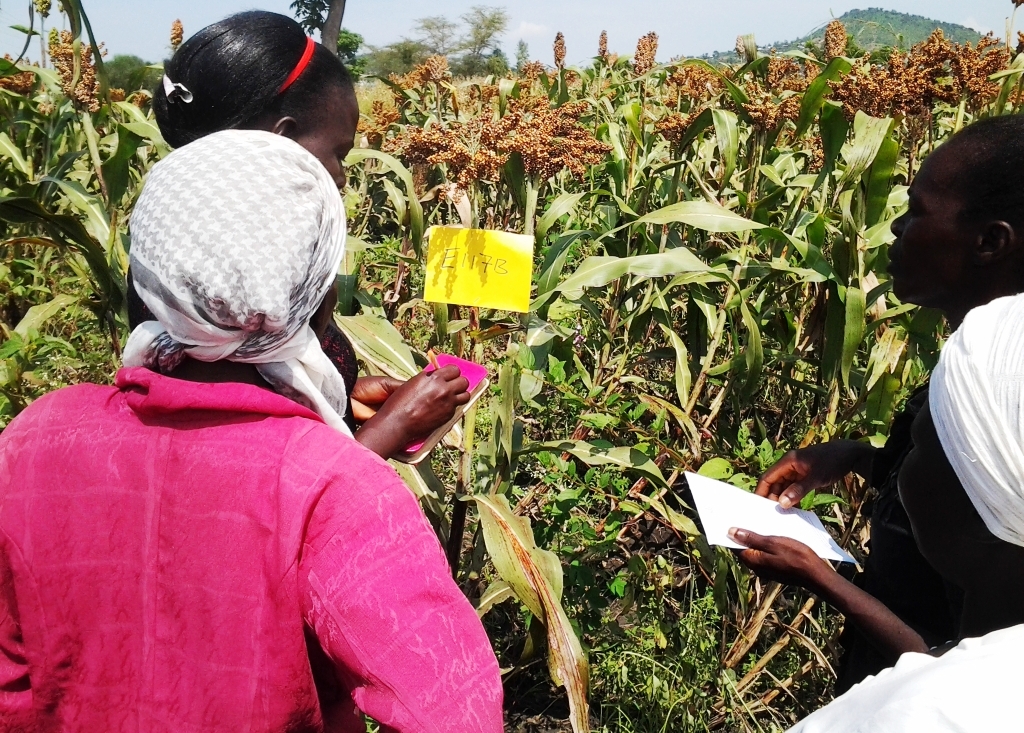
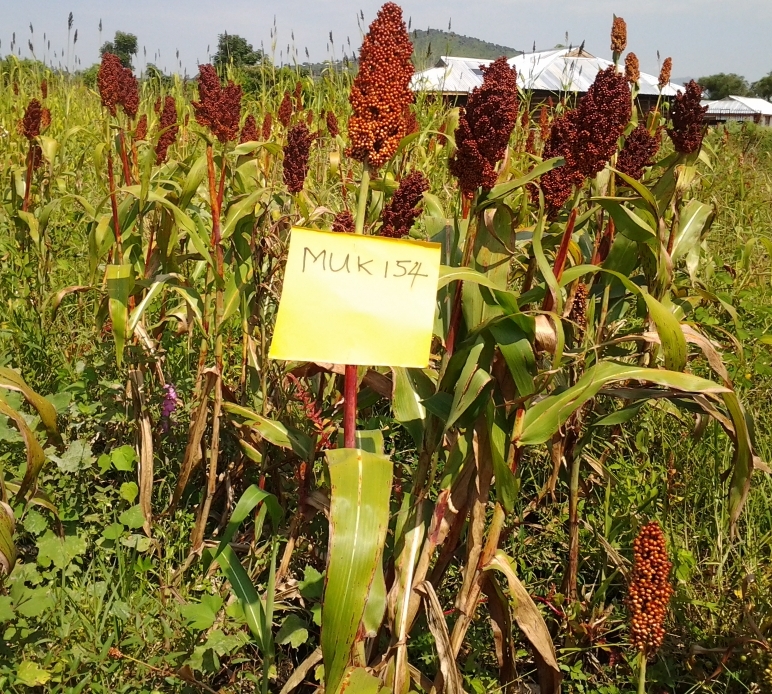




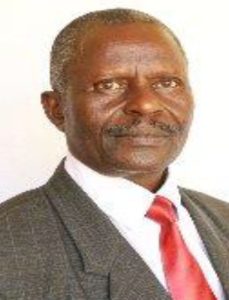
Dr. Francis Ongachi Olal PhD, MPhil, BSc, HND
Ag. Dean, School of Science, Agriculture & Environmental Studies
Welcome to Rongo University, School of Science, Agriculture, and Environmental Studies
Welcome to the School of Science, Agriculture, and Environmental Studies at Rongo University, where we strive to provide quality and innovative higher education. Our school is dedicated to preparing students for a world-class, technology-driven learning environment.
At Rongo University, we have three departments within the School of Science, Agriculture, and Environmental Studies:
- Department of Physical, Biological, and Environmental Studies
- Department of Mathematics, Statistics, and Computing
- Department of Agriculture and Environmental Studies
Our school offers a wide range of competitive programs at various levels, including diplomas, bachelor’s degrees, master’s degrees, and doctoral degrees. These programs cover pure sciences, applied sciences, health sciences, agricultural sciences, and environmental sciences.
We take pride in nurturing innovative graduates through interactive teaching, research, and community service. Our dedicated faculty members are committed to providing a dynamic learning environment that prepares students for the ever-changing demands of the scientific and agricultural fields.
At Rongo University, we understand the importance of food security and the role that science and agriculture play in achieving it. Therefore, we continuously review our curricula to ensure that our graduates are equipped with the necessary skills and knowledge to address the evolving needs in these critical sectors.
Join us at the School of Science, Agriculture, and Environmental Studies at Rongo University and embark on a journey of academic excellence. Explore our programs, engage in impactful research, and contribute to the advancement of science, agriculture, and environmental studies.
Contact us today to learn more about our school and the exciting opportunities that await you. Together, we can make a difference in shaping the future of these important fields.
Academic Programs offered by the school
- Diploma in Agriculture
- Diploma in Agribusiness
- Diploma in Horticulture
- Diploma in Food Science and Technology
- Diploma in Aquaculture and Fisheries Management
- Diploma in Public Health
- Diploma in Community Health and Development
- Diploma in Science Laboratory Technology
- Bachelor of Science in Agriculture
- Bachelor of Science in Horticulture
- Bachelor of Science in Agricultural Extension and Education
- Bachelor of Environmental Science
- Bachelor of Science in Agricultural Economics and Resource Management
- Bachelor of Science in Agribusiness
- Bachelor of Science in Mathematics
- Bachelor of Science in Statistics and Computing
- Bachelor of Science in Computer Science
- BSc Public Health
- BSc Biochemistry
- BSc Microbiology
- BSc Physics
- BSc Chemistry
- BSc Zoology
- BSc Botany
- BSc Fashion Design and Textile Technology
- Masters of Science in:
- Plant Breeding
- Horticulture
- Environmental Biology
- Environmental Planning and Management
- Chemistry
- Doctor of philosophy in:
- Plant Breeding
- Environmental Biology
- Environmental Planning and Management

Undergraduate Studies
We offer a quality teaching and experience to our undergraduate students.
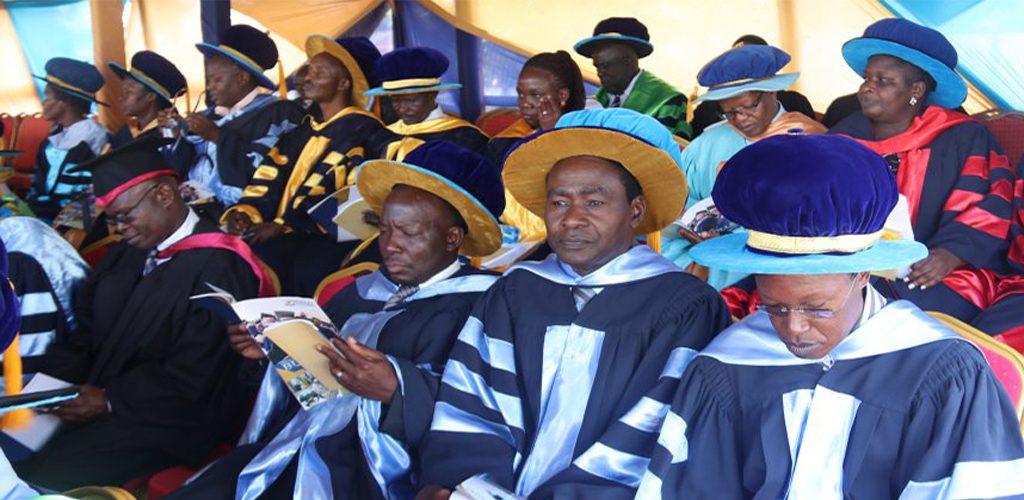
Postgraduate Masters
We offer a unique experience and opportunity to work to our graduate students.

Doctorate studies
We offer a unique experience and opportunity to work to our doctorate students.
Current News & Events
September 2023 intake
Dear Prospective Students,
We are delighted to announce that Rongo University’s prestigious Department of Agriculture and Environmental Studies is now accepting applications for the September 2023 intake. If you have a passion for the environment, sustainable agriculture, and are eager to make a positive impact on our planet, this is an opportunity you won’t want to miss. At Rongo University, we understand the importance of equipping students with the knowledge and skills needed to tackle the complex challenges our world faces today. With a strong emphasis on practical training, research, and innovative teaching methods, our Department of Agriculture and Environmental Studies provides a comprehensive education that empowers our graduates to become agents of change.
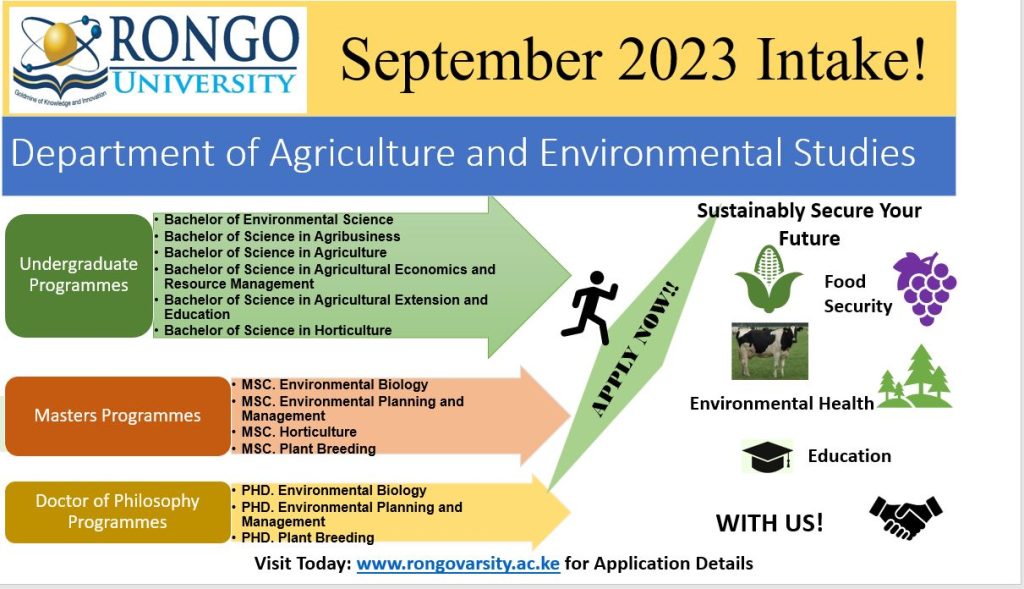
Whether you aspire to work in agriculture, conservation, environmental policy, or research, our expert faculty members are dedicated to nurturing your potential and helping you achieve your goals. With state-of-the-art facilities and access to extensive resources, our university creates an ideal environment for learning and growth.
To apply for the September 2023 intake, please visit our official website and complete the online application form. The application process is simple, and our admissions team is available to assist you throughout the process. Don’t delay – secure your place today!
For more information about our Department of Agriculture and Environmental Studies, course offerings, faculty profiles, and admission requirements, please visit our website. Explore the possibilities that await you and take the first step towards an exciting and fulfilling academic journey.
Visit our Admissions page at https://www.rongovarsity.ac.ke/application-forms/ to access the application forms directly.
If you have any inquiries or require further assistance, feel free to contact our admissions team at [insert contact details]. We are here to guide you and provide the necessary information to ensure a seamless application experience.
Join Rongo University’s Department of Agriculture and Environmental Studies this September and unlock your potential to create a sustainable future. Together, let’s make a difference!
Farmers pot and prick agroforestry tree seedlings at Rongo University, as part of a McKnight Sorghum research project.
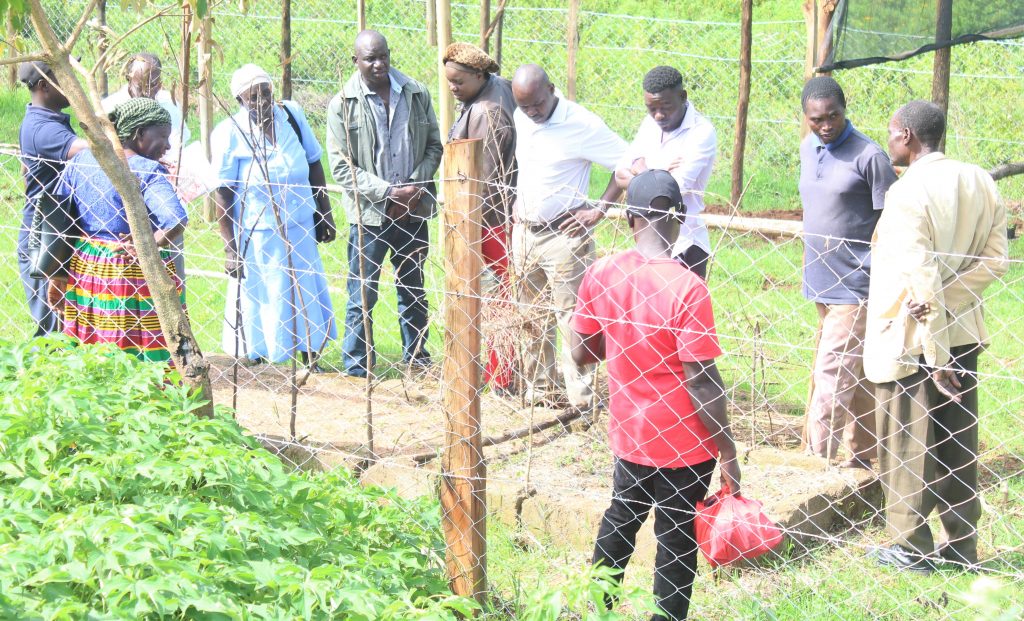
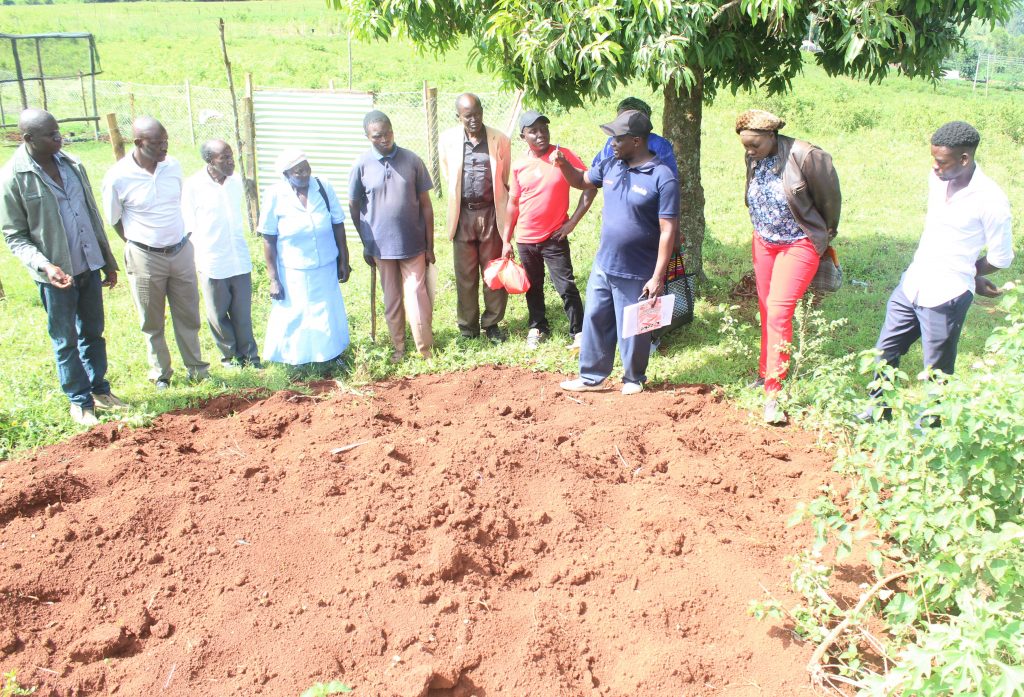
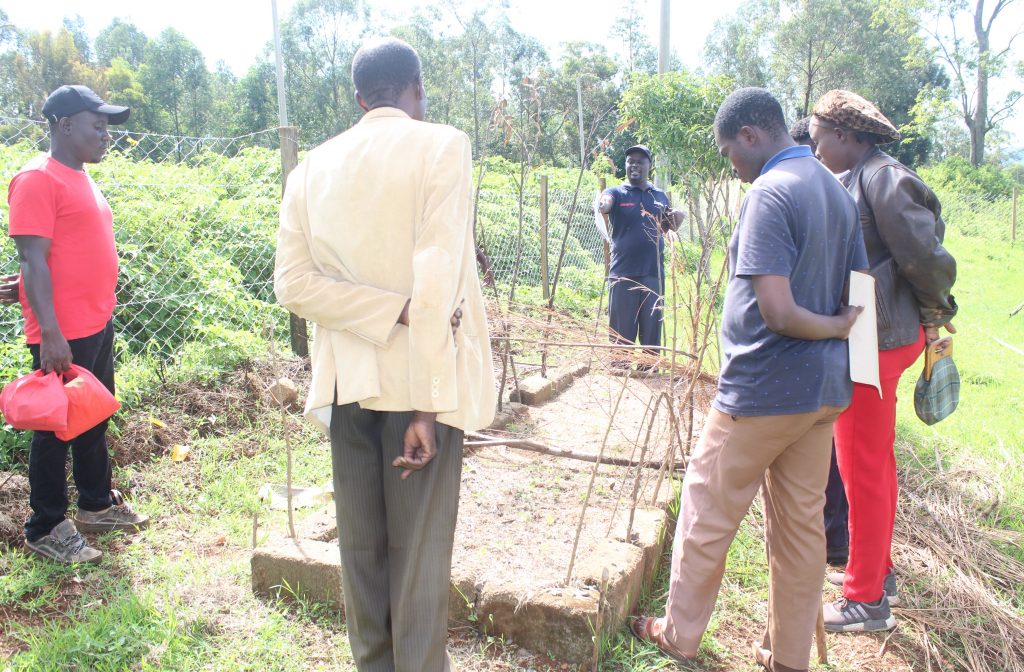
RONGO UNIVERSITY LAUNCHES TREE AND FRUIT SEEDLINGS NURSERY THROUGH STAKEHOLDERS' PARTICIPATION - A PROJECT FUNDED BY MCKNIGHT FOUNDATION
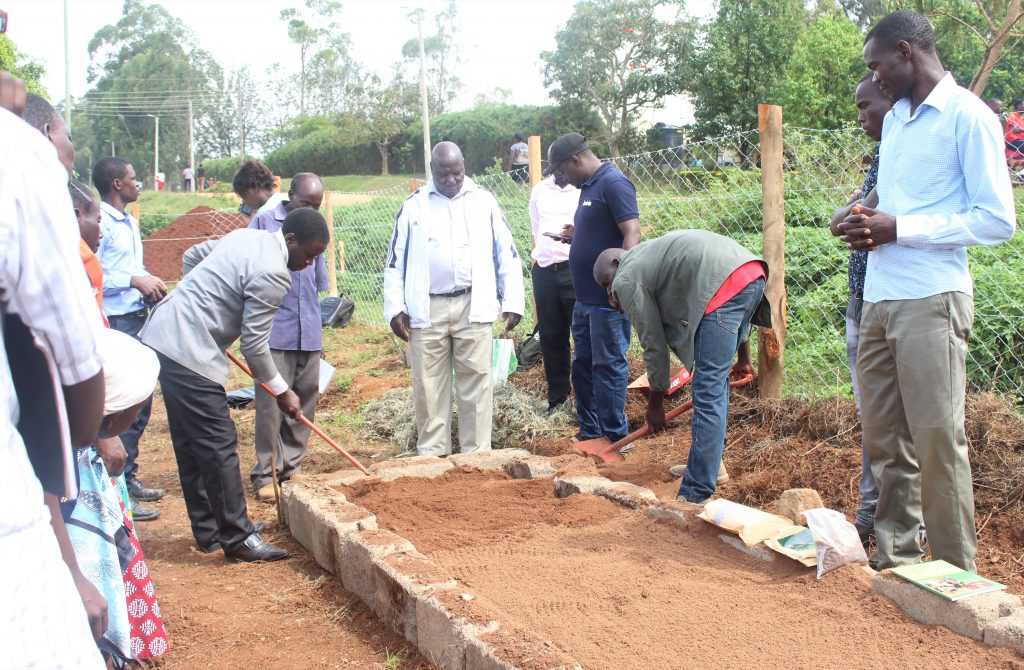
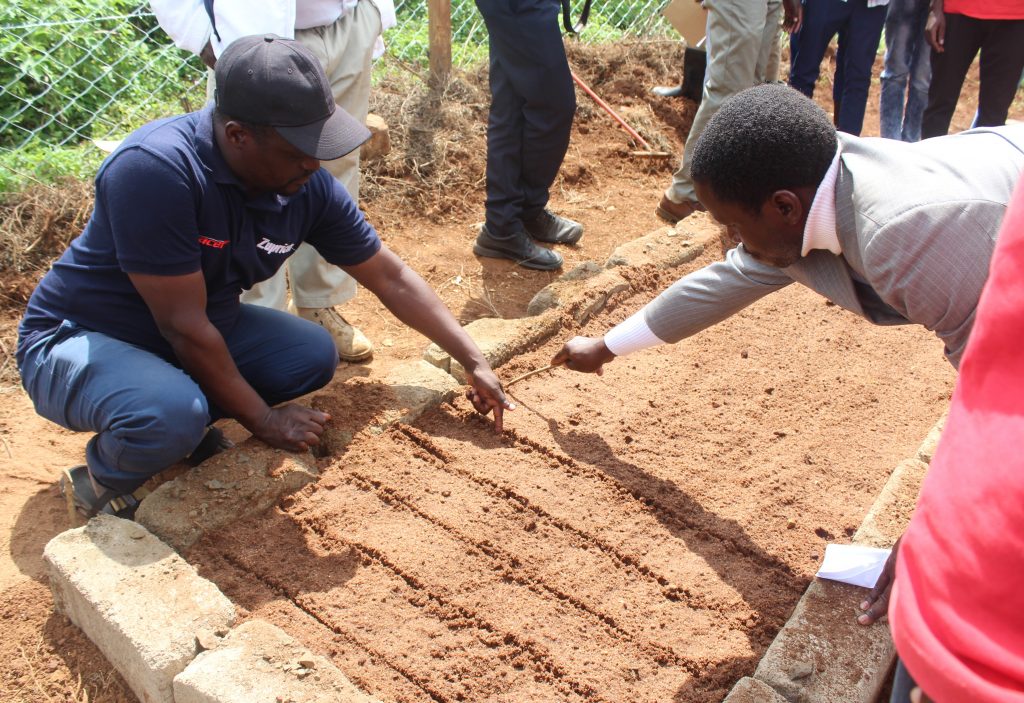
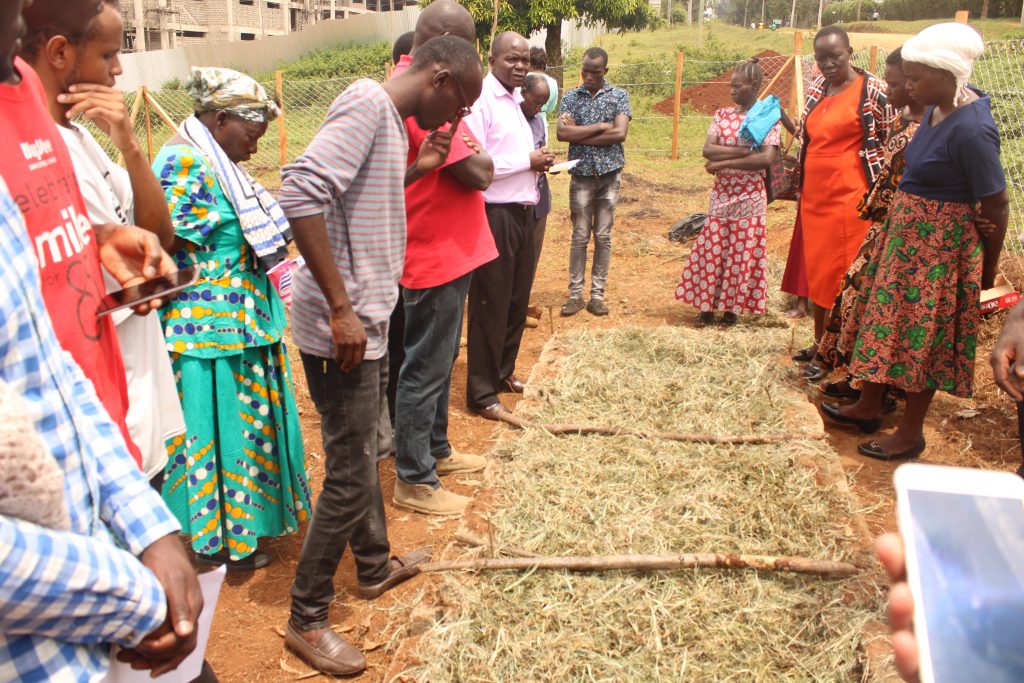
On Tuesday, 12th April 2022, Rongo University under the department of Agriculture took part in Agro-forestry project that trained and equipped farmers from Migori and Homabay county on establishment of bed and planting of seeds for promotion of agro-forestry practices.
Crop Trust Sorghum Project Updates January 2021 Coping with climate change effects on sorghum productivity in western Kenya
Climate change threatens to significantly increase the number of people at risk of food insecurity all over the world. It has led to increase in the frequency and intensity of natural disasters and extreme weather events, such as droughts, floods, rising sea levels; salinization of water supplies and agricultural lands; changes in rainfall patterns; and decline in water quality and availability in arid and semi-arid regions, with expected reduction in agricultural productivity, especially in sub-Saharan Africa. The project held a stakeholder analysis workshop in Migori County in January 2021 in order to obtain shared understanding on the effects of climate change on sorghum production in western Kenya and discuss some coping strategies for small holder farmers in this region. From the discussions with farmers it was evident that majority of farmers have understood the concept of climate change and have experienced its effects in one way or another. Some of the evidences they mentioned within their locality included; change in rainfall amount and pattern. Erratic rainfall has led to disruption of their two cropping seasons thus making it difficult for optimum sorghum production in the two seasons. It has also led to late planting making the sorghum crop to be more susceptible to attacks by pests like shoofly and Fall armyworm which cause severe losses to the crop. Read More..
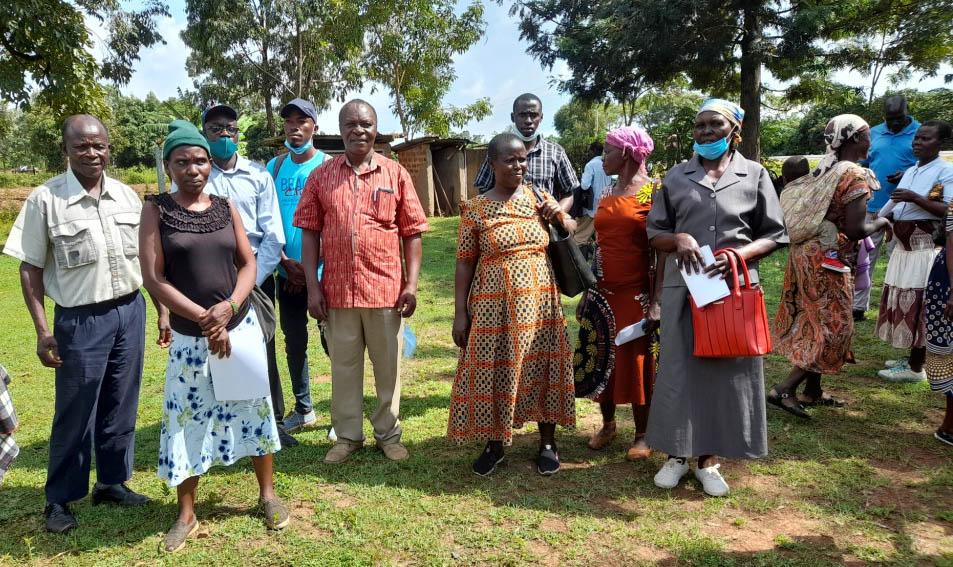

ENHANCING THE POTENTIAL OF RICEBEAN AS A FOOD SECURITY CROP FOR MITIGATING AGAINST CLIMATE CHANGE IN KENYA
Project objecive(s)
The overall objective is to popularize rice bean by identifying and measuring the diversity within the range of germplasm available and differentiating it for suitability to the cropping systems of the regions for study. Farmer-preferred varieties will be matched to diverse seasons, environments and markets, using a combination of genetic, agronomic, and socio-economic approaches and using participatory varietal selection principles to identify genotypes and parents for future crop improvement (breeding) programs.
The project expects to integrate ricebean into sorghum and maize-based cropping systems in kenya.
Specific objectives are;
- To determine status of ricebean value chain.
- To determine and conserve ricebean biodiversity.
- To validate, promote appropriate agronomic practices and IPM for ricebean production.
- To determine the nutritive value of rice bean and promote its products and value added products.
- To build capacity of ricebean value chain stakeholders.
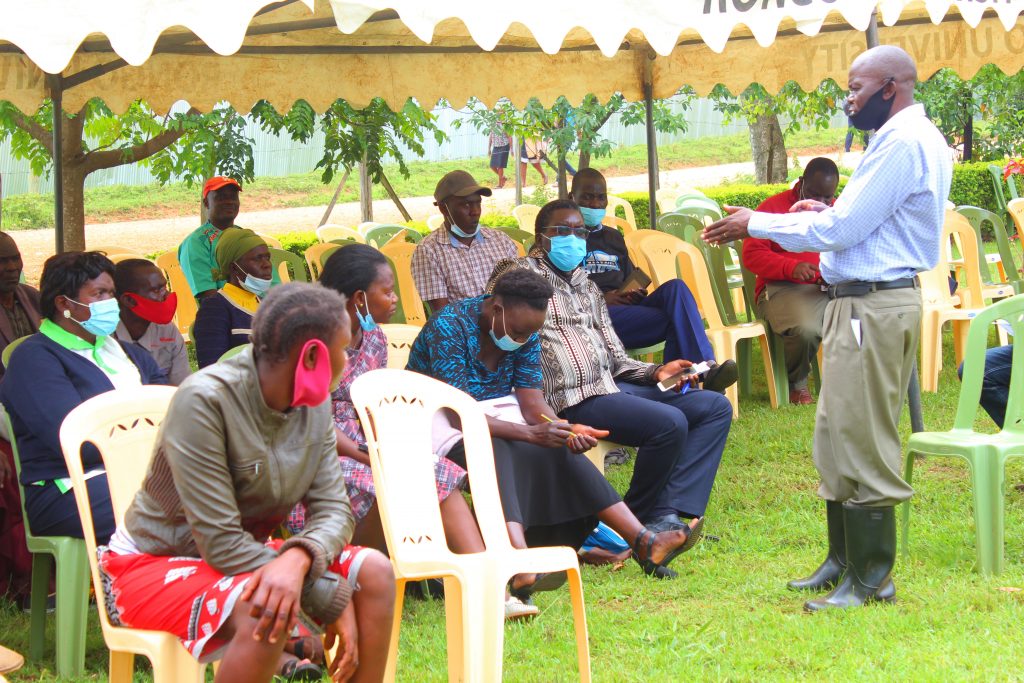
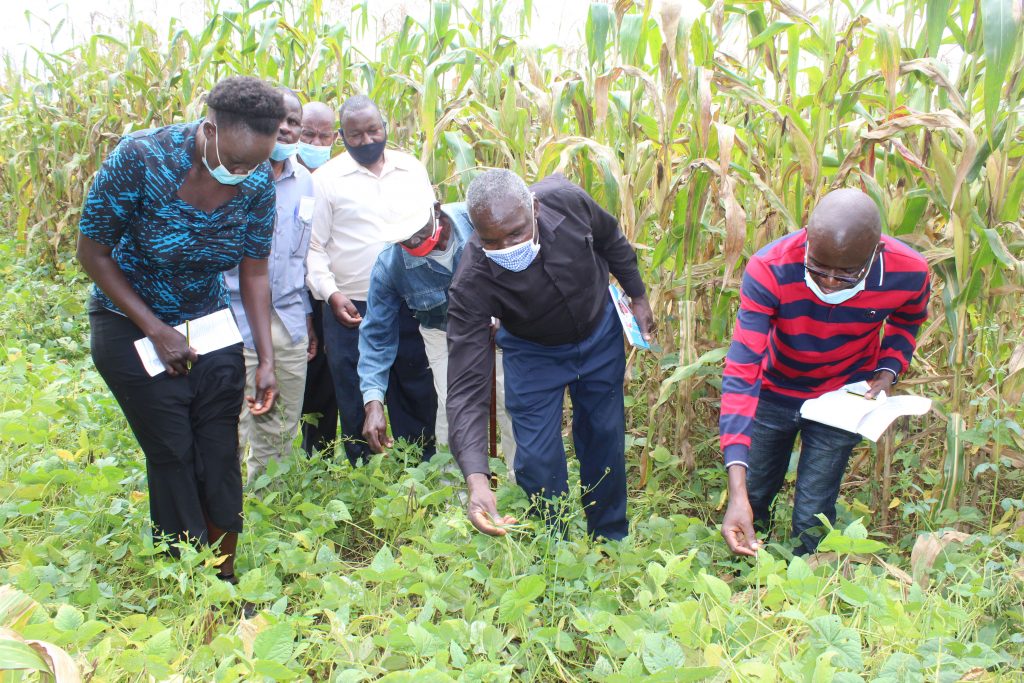
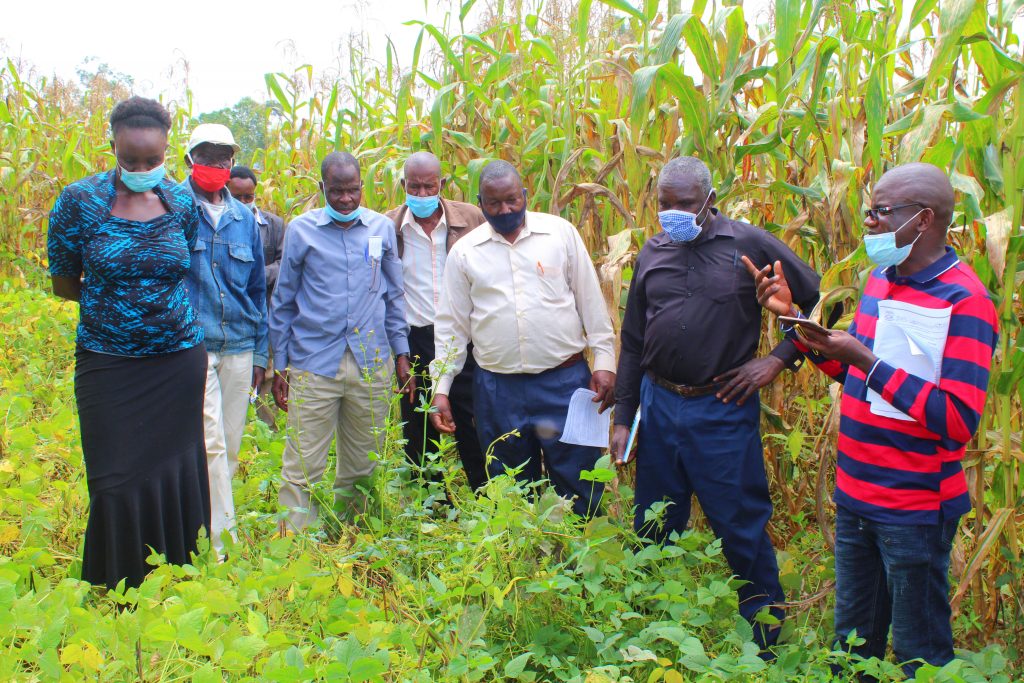
Stakeholders Consultative Meeting
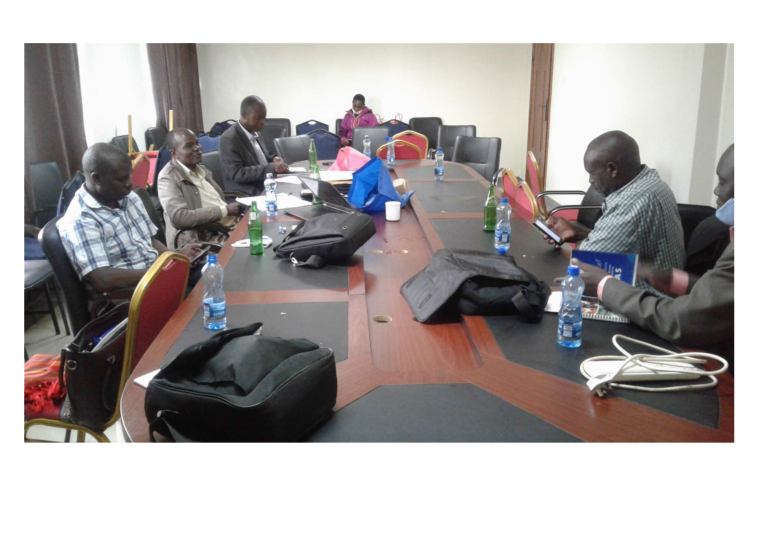
Title of Research: Adapting climate smart technologies along the sorghum value chain to enhance productivity, utilization and improved livelihoods
Project sum: Ksh. 22,000,000
Area of implementation: West Pokot, Laikipia and Isiolo Counties
Goal: Contribute to increased sorghum productivity, utilization and improved livelihoods in selected arid and semi-arid lands of Kenya.
Objectives
To validate and promote suitable sorghum varieties for food, fodder and brewing
To validate and promote appropriate sorghum production technologies for soil management, water conservation, good agriculture practices and striga weed management
To establish and promote sustainable market linkages.
To promote sorghum value addition and product diversification at farm level for food, fodder and improved livelihoods
Ricebean Project
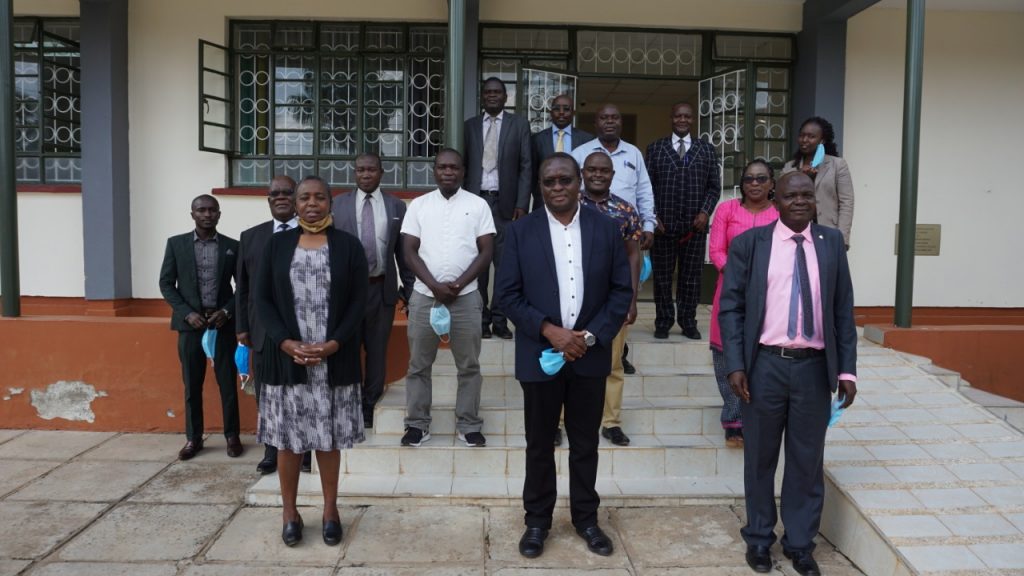
On 18th July, 2020 the School launched Ricebean Project Kaimosi University College. Professor Peter Oloo Kisinyo attended the project launch.
Project Launch, from left: 1) Dr. Florence Odiwuori and 2) Prof. Peter Kisinyo
Title of Research: Enhancing the Potential of Ricebean as a Food Security Crop for Mitigating Against Climate Change in Kenya
Project sum: Ksh. 19,800,000
Area of implementation: Migori, Siaya and Siaya Counties
Overall Objective: To popularise rice bean by identifying and measuring the diversity within the range of germplasm available and differentiating it for suitability to the cropping systems of the regions for study. Farmer-preferred varieties will be matched to diverse seasons, environments and markets, using a combination of genetic, agronomic, and socio-economic approaches and using participatory varietal selection principles to identify genotypes and parents for future crop improvement (breedinAg) programs. The project expects to integrate ricebean into sorghum and maize-based cropping systems in Kenya.
Specific objective are;
- To determine status of ricebean value chain
- To determine and conserve ricebean biodiversity
- To validate, promote appropriate agronomic practices and IPM for ricebean production
- To determine the nutritive value of rice bean and promote its products and value added products
- To build capacity of ricebean value chain stakeholders
SCHOOL OF SCIENCE, agriculture & environmental studies
Goldmine of Knowlege and Innovation